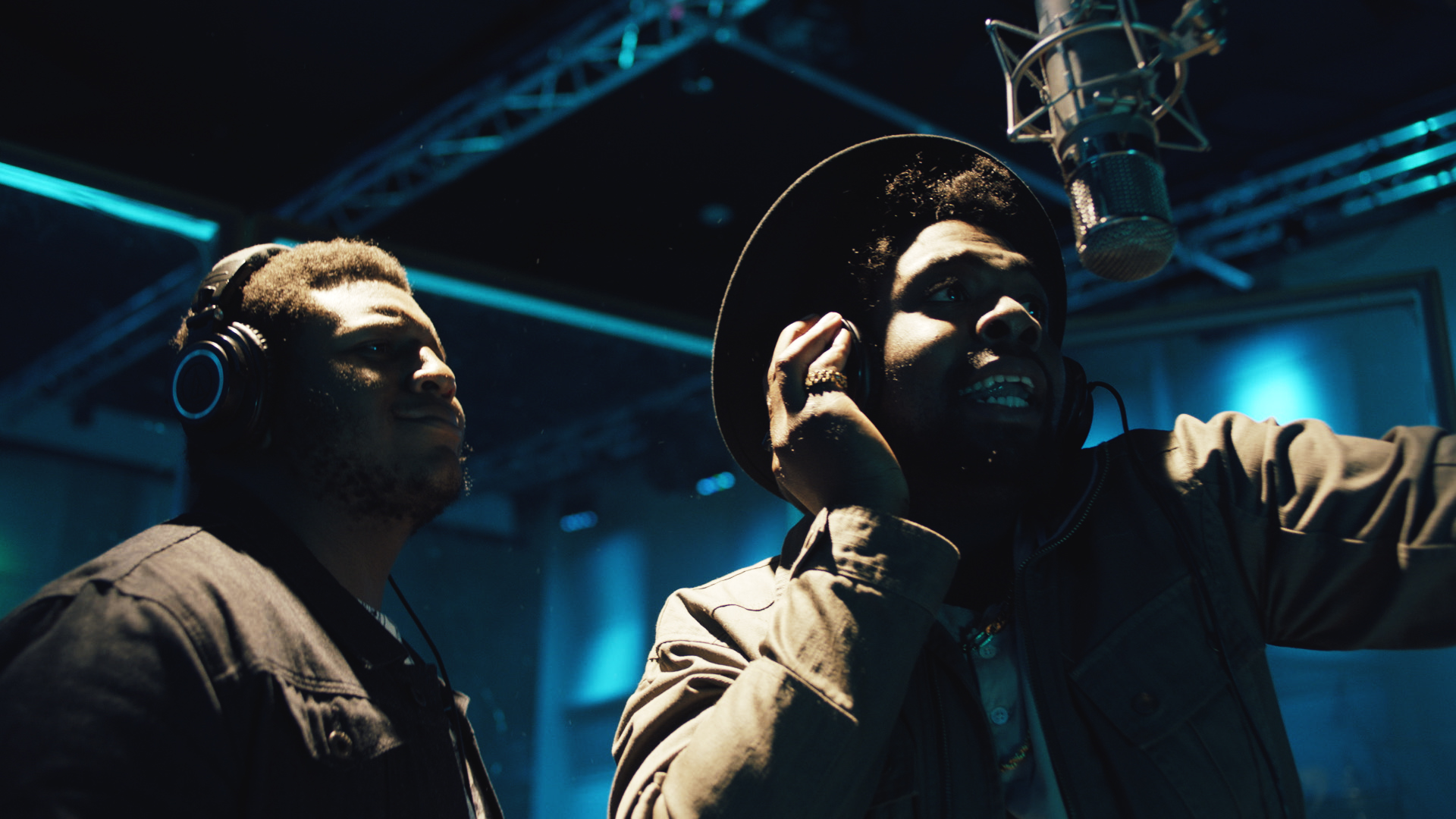If I made a list of this year’s most underrated films, Summertime (2021) would fill the top three spots. Directed by Mexican-American filmmaker Carlos López Estrada (also the director of Disney’s Raya and the Last Dragon) and executive produced by Kelly Marie Tran, the film interweaves the stories of 25 extraordinary people over the course of one summer day in Los Angeles.
The best part? Every actor, whose characters occupy all types of occupations and backgrounds from an up-and-coming rapper to a fast-food cashier to the cooks of a local Korean restaurant, is a spoken word poet. When there aren’t regular dialogue scenes between characters, minutes-long soliloquies, songs, and dances about family, fear, lost love, and home fill the space, humanizing and de-gentrifying the iconic city of L.A.
I saw Summertime at a special screening in the Arts District of (where else?) Los Angeles last month as part of a larger campaign to make the film accessible to the communities it represents. Afterward, we in the audience took part in writing exercises led by a few of the actors, Q+Aed with the cast and crew, and even got the chance to perform at an open mic. We also learned about the process behind the film, which involved a three-month-long poetry workshop with the actors to create just the first draft of the film script and months of further revising, editing, and cutting entire poems before and even during filming.
The extraordinary amount of labor that went into every second of this movie is evident from the get-go – it’s a piece of media completely unlike any other in structure, cinematography, and the sheer number of voices. Because every actor in the film is a spoken word poet and a collaborator on the script, there are more than 30 people credited as screenwriters, including Tyris Winter, Marquesha Babers, Maia Mayor, Jason Alvarez, and director Estrada.

Being a lifelong Angeleno myself, I’d never seen my city represented in film and TV as anything more than a gentrified Hollywood paradise where white people go to make their entertainment dreams come true and live in Beverly Hills once they’ve made it. As much as I love La La Land (2016), Die Hard (1988), and Sunset Boulevard (1950), they’re misleading. It’s honestly quite frustrating how often stories set in L.A. center Anglo-American stories, either pushing marginalized communities to the background or erasing them all together.
But in Summertime, some of which was filmed near my Asian and Latinx neighborhood in East L.A., I saw streets that I’d walked or driven down, small businesses that I might’ve frequented, iconic landmarks and destinations like Santa Monica Pier that looked totally different through a more empathetic lens.
We hear spoken word poems critiquing failed relationships as a result of infidelity and fatphobia, an overpriced hamburger and avocado toast in a food spot catering to the white upper-class, homophobia casually displayed on a L.A. Metro bus (fun fact: the last time I saw a scene take place in L.A.’s public transport was in 2006’s Akeela and the Bee). Even graffiti and murals are celebrated rather than seen as an eye-sore.
We see line cooks at a local Korean food spot singing songs together in the kitchen in a much-needed moment of joy, a female mariachi singer showing love for the Mexican restaurant she works at through song, and at the end, all of the leading characters finding themselves in a limo for the very first time, driving through Los Angeles at night and bonding over their shared home. All the usual politeness and distance between strangers is gone.

One of my favorite scenes featured poet Gordon Ip, who plays a cashier at a local hamburger joint. Because of the sheer number of customers, one who’s trying to order, another who got their order wrong, and another one who keeps nagging him to clean the bathroom, he performs a spoken word poem criticizing the exploitation and poor treatment of fast-food workers by everyone from management to the public.
During the Q+A, Ip spoke about the long process of writing the poem and how he’d been inspired in part by Crazy Rich Asians (2018). As much as the film raised awareness of the lack of Asian-American narratives in U.S. media, it fails to represent the Asian communities he knew who made up a substantial part of the working-class.
It was also amazing, of course, to see Latinx characters living their everyday lives as more than walking stereotypes, including a mother who scolds her daughter with all the familiarity, Spanish, and inside jokes that only Latinas could understand, and a Latino graffiti artist who reveals hidden depth and humor over the course of the film rather than remain a pest to the police and local businesses (spoiler: he reveals that he tags buildings with his name because L.A. is his city and he wants it to remember him).
From start to finish, this is an incredible film that I was so lucky to see, and one that I so desperately needed. Whether or not you like poetry, live in Los Angeles, or are part of a marginalized community, Summertime is a must-watch, and one I know that I, at least, will now always include on my list of all-time favorite films.

